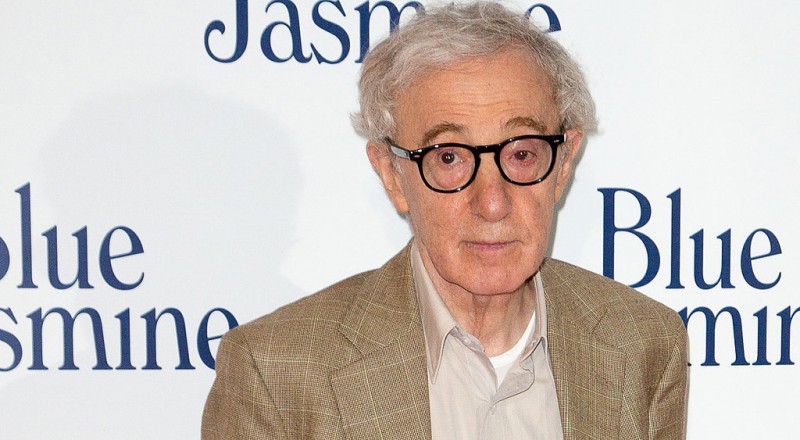Heather Keane | Contributing Writer
On February 1st, the New York Times published an open letter penned by Dylan Farrow, Woody Allen and Mia Farrow’s joint-adopted daughter. The letter details the sexual abuse Dylan has accused Allen of committing when she was seven years old and the distressing relationship with him that followed. The internet exploded overnight and sides were viciously taken and tweeted. The Daily Beast published a purportedly factual defence of Allen by his documentary’s director, Robert Weide. Fans of the neurotic film-maker used this piece to defend Allen’s name, assured that the man they knew and loved couldn’t be up to this crime. Other’s saw the prejudice Weide’s testament belied and vowed to never watch another of Allen’s films. The New York Times has since published an Op-Ed by Allen responding to Dylan’s letter, but even with both sides of this horror story published, there will be only one certainty: we can’t know what happened.
“I hope that the way we individually react to this story alerts us to our hostility towards victims”
I support Dylan. I don’t know the truth, but I do know that the rape culture we live in has made it more important for me to get behind those who are brave enough to report their abuse than to protect the side of society that patriarchy already has covered. I hope that she continues to speak out in the open and honest way that she so far has in order to give others the confidence to do the same. I hope that the way we individually react to this story alerts us to our hostility towards victims, and prompts us to ask questions about why we are so quick to defend one reputation rather than protect the physical and mental wellbeing of another. But I’m probably not going to switch off the TV if Annie Hall comes on.
I had a lot of feminist opinions about Blurred Lines when that happened too, but I wasn’t one to celebrate when several UK universities banned the song. I thought the move, while well-meaning, was naive and would come back to haunt them in situations just like this. After outlawing a pop song made by a man whose main crime in real life is being a bit of a dunce, how harshly are the Students’ Unions expected to react to on-campus screenings of films made by an alleged child molester? Is a boycott of Allen’s products the best way we can show our support for sexual abuse victims?
Dylan has personally reached out to those involved in her father’s films, asking for the world to stop celebrating her tormentor. Supporting her will change the message that Hollywood sends out to survivors. Snubbing Allen on your Netflix account might ease Dylan’s suffering, but what about the message the rest of the pop culture industry sends out? What about the survivors who haven’t got the pages of the New York Times to share their story from?
“Glorifying another man implicated in sexual abuse of minors sparked a similar journalistic backlash but in a much smaller scale.”
Allen was recently selected for a lifetime achievement award at this year’s Golden Globes. It was this honour that prompted Nicholas Kristof to publish Dylan’s account and the move that opened up the debate about Allen’s innocence once again. An endorsement made last year by Pitchfork, music’s elite and most respected commentator, glorifying another man implicated in sexual abuse of minors sparked a similar journalistic backlash but in a much smaller scale.
Last year’s annual Pitchfork festival in Chicago boasted one ultimate headliner: R Kelly. Jim DeRogatis was one of the few writers who reacted to this selection with the R&B star’s criminal history in mind, publishing a review of the festival that criticised Pitchfork for championing a man who has raped dozens of teenage girls. After a successful summer for Kelly, earning rave reviews even from feminist site Jezebel – “R. Kelly’s Black Panties is a Magnificent Ode to Pussy” – Village Voice published the sexual assault accusations made against Kelly in full with an interview with DeRogatis two days after his latest album dropped.
“Why are we still joking about Kelly when most of us are vaguely aware of the video in which he rapes and urinates on a fourteen or fifteen year old girl?”
DeRogatis spoke about the two dozen women he had interviewed who were involved with the man who was unbelievably acquitted for a child pornography charge and never been tried in court for rape, despite hundreds of pages of civil lawsuits against him from the young girls whose lives they say he has ruined. Why didn’t this story spark its own hashtag on twitter? Why are we still joking about Kelly when most of us are vaguely aware of the video in which he rapes and urinates on a fourteen or fifteen year old girl? What makes us pick and choose which abusers we criticise and which abusers we ironise?
As the internet reacts to this Allen story and the thinkpieces flood in, I hope that supporters of Dylan continue to reject the apologists and to ask people to stop brushing aside the reality of rape culture. I also hope that supporters will widen their eyes past the pages of privileged publications, to the lesser acknowledged and equally harmed. I do hope Allen’s box office numbers take a hit as long as Dylan’s truth is upheld, but I hope that this won’t be the only consequence of this episode.







